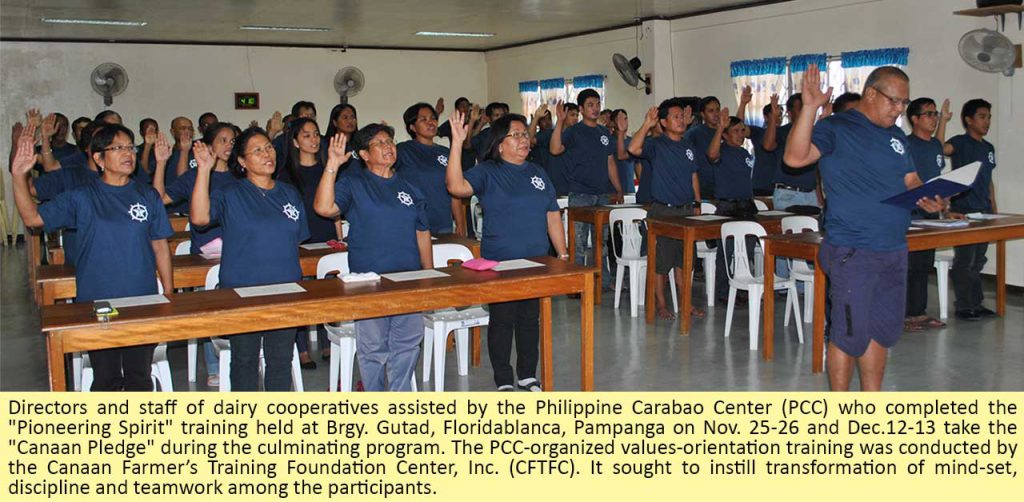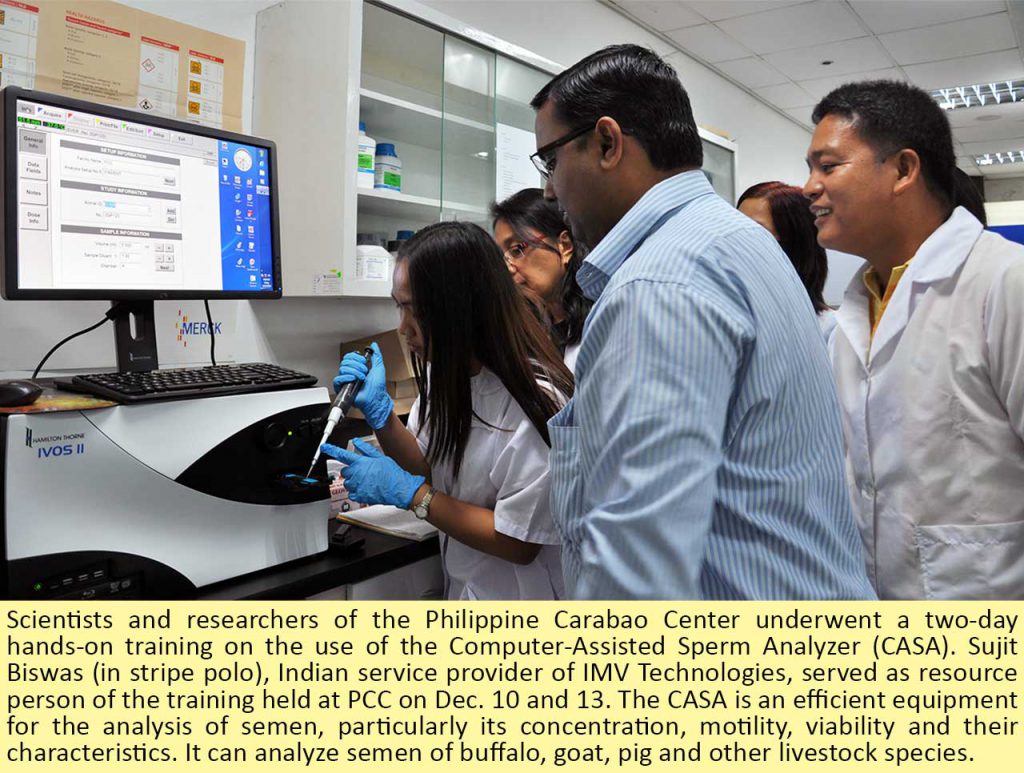A total of 43 directors and staff of cooperatives belonging to the Nueva Ecija Federation of Dairy Carabao Cooperatives (NEFEDCCO) have completed the Pioneering Spirit Training designed for “values-orientation in instilling discipline, individual reformation and teamwork to achieve sustainable dairy cooperatives.”
The participants were divided into two batches for the training conducted by the Canaan Farmer’s Training Foundation Center, Inc. (CFTFC) in its training center in Barangay Gutad, Floridablanca, Pampanga on Nov.25-26 and Dec.12-13.
The activity was organized by the Philippine Carabao Center’s Dairy Herd Improvement and Enterprise Development (DHI-ED) unit thru agriculturist II Wilma del Rosario.
Elder Kwan Soo Lee and Neribeth Ignacio, CFTFC president and assistant director, respectively, served as resource persons.
“If there is no transformation of mind-set, then there will be no transformation of the behavior. That’s why the important thing is to put transformation first as the starting point on the road to progress,“ Lee said, in emphasizing the essence of the training.
“We start with the pioneering spirit to practice work, service and sacrifice in our lives,” he added.
Ignacio, on the other hand, explained that “unang-una nating dapat na maintindihan na ang pagbabago ay hindi agad sa malakihang bahagdan kundi sisimulan natin sa maliliit na bagay, sa simpleng bagay na araw-araw na ginagawa sa pansariling buhay (We must first of all realize that development is not a one-time, big-time event but rather a process that starts from small, simple things that we do in our personal lives).”
The topics covered in the training course were pioneering history, Canaan strategies, pioneering spirit, living constitution, basic economy, community development, small- scale entrepreneurship and life toward Canaan. The Canaan ideology on work, service and sacrifice was also given emphasis.
Aside from the lectures and group discussions, the participants underwent field work in which they cultivated the land to “go back to the basic ways of living to cultivate the body, mind and spirit and rekindle everyone’s sensibility for cooperation.”
At the culmination of the training, the participants voiced their appreciation for the two-day live-in activity.
“Ang mahalaga, kahit parang sinasabing simple lang, malaking bagay na ito. Sa trabaho kapag nagkaisa kami o nagtulong-tulong ay malaking bagay ito para iyong susunod ay matatapos ng madali (Even the so-called small things are important. In work, when we join forces, it is already a big thing so that the next task can be done at once and easily),” Juanito Dumali, director of a dairy cooperative in Licaong, Science City of Muñoz, Nueva Ecija, said.
For Heraldo delo Santos, a BOD member of Casile Cooperative, the lessons he learned were “to appreciate and respect each other and to be thrifty.”
On the the other hand, Myra Bennales, NEFEDCCO treasurer, said that she realized the value of “time management and discipline in working for one’s self and more so for others to do a job well.”


